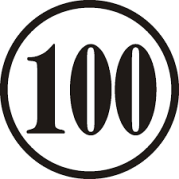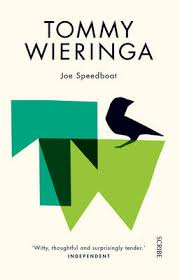Without any further ado here are the five books that did it for me in 2015. To find the full reviews please click on the titles
5. Work Like Any Other – Virginia Reeves (Scribner 2016) (Read and reviewed in September)

This is the one that should have made the progression from the Booker longlist to the shortlist. An astonishing debut. It’s 1920s Alabama and a plan to bring electricity to Roscoe Martin’s farm goes badly wrong. It’s the second tale of rural survival on my list but is imbued throughout with hope -throughout the darkest moments there’s hope and Reeves conveys this beautifully.
4. His Bloody Project – Graeme Macrae Burnet (Saraband 2015) (Read and reviewed in August)

My pick of the Booker Prize shortlist. Published by a tiny Scottish independent this was one that would have slipped through my net had it not had the Booker nod. A historical novel that reads like true crime is an interesting concept but what makes this special is the real feel of the crofting community of the Scottish highlands in 1869 through a prison journal, witness statements, official documents and court transcripts. Sold well after its Booker recognition but a win would have turned this into one of the year’s big books. It is certainly a big book in my opinion.
3.Black Narcissus – Rumer Godden (Virago 1939) (Read in June and reviewed in August)

Love the film but have never actually got round to reading the book. Neurotic nuns up a mountain – what’s not to love? I wasn’t sure if Godden would have been able to convey the technicolour lushness of the film but she certainly does. Hopefully in 2017 I’ll be able to seek out more by her.
2. Life After Life – Kate Atkinson (Doubleday 2013) (Read in April and reviewed in May)

2013 Costa Novel award winner. I am the last one around to read this? Structurally superb, risking accusations of style over substance but producing a novel which is both technically surprising and first class. “Practice makes perfect” is a theme of the novel and Atkinson here gets close to perfection.
Time for the long silence before the winner is announced (oh, can’t do long silences on a blog so I’ll get straight on with it .The reviewsrevues Book Of The Year 2016 is……….
1. Joe Speedboat – Tommy Wieringa (Scribe 2016) (Read and reviewed in May)

In any other year there could have been as many as three Wieringa novels in my Top 10 as the other two I have read are hovering outside the Top 10 and are both very good. This is also how I felt last year with his “These Are The Names” published by Scribe and which saw them embarking on a programme to of bringing out his earlier Dutch novels translated by Sam Garrett. A 2009 debut this was apparently the biggest ever selling Dutch debut in his homeland and it deserves a huge audience here. A coming-of-age novel about Frankie, who has survived a horrific accident and becomes swept up by the antics of newcomer Joe Speedboat. Like all the best books it provokes a myriad of emotions- it is touching, unpredictable, outrageous and laugh out loud funny. Scribe have been a great support to this blogger this year, but there’s certainly no favouritism. This book has reached my summit on merit.
This is the second year I have gone for a book in translation for my top pick. Last year’s Top 5 can be found here. I have probably read more translated novels this year but that is because of authors such as Tommy Wieringa. If there is a pattern, and I wouldn’t have said there was, but looking at my ten titles I can see that there may very well be one, it is to make my top 10, authors, set your novels in the past. I wouldn’t have said I was a great historical novel fan but this list suggests otherwise… We’ll see what 2017 conjures up. Bring it on!
As I read a lot more books this year than I normally do there are a number of titles that I feel bad about missing out on my Top 10 – so here are a few special mentions for recent publications. The Wicked Boy – Kate Summerscale, Hot Milk-Deborah Levy, The Double Life Of Kit Kavanagh- Marina Fiorato, Eileen -Otessa Moshfegh, Do Not Say We Have Nothing – Madeliene Thien, Rembrandt’s Mirror- Kim Devereux, Tall Oaks – Chris Whitaker ( incidentally a nominee for the newbooks Book Noir book of the year) , Angel Of Highgate – Vaughn Entwistle, Himself- Jess Kidd (the last four authors I have had the great pleasure of interviewing this year- always one of my personal highspots of reviewsrevues.com)
In my next post I’ll honour the re-read that gave me the most pleasure this year.
See my Top 10 Books Part 1 – numbers 10-6 here












 This is the eleventh publication from this Dutch prize winning author (he has now published twelve in his homeland –three are available as English translations). Set on and around the steppes of Eastern Europe a Police Commissioner Pontus Beg finds himself forming a bond with the only Rabbi left around. As he embarks on his own personal odyssey a much crueller one is taking place.
This is the eleventh publication from this Dutch prize winning author (he has now published twelve in his homeland –three are available as English translations). Set on and around the steppes of Eastern Europe a Police Commissioner Pontus Beg finds himself forming a bond with the only Rabbi left around. As he embarks on his own personal odyssey a much crueller one is taking place.